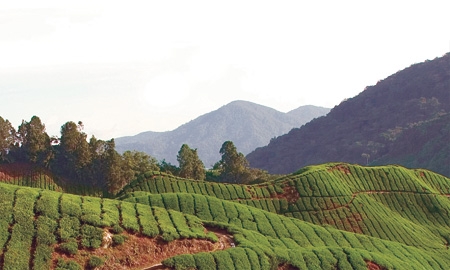
Agriculture is very much an important way of life in Malaysia: 16 per cent of the population is involved in the industry and close to 24 per cent of land is allocated to agricultural practices. While the country boasts a plethora of natural resources, the main cash crops are palm oil, cocoa and rubber.
The sector currently accounts for 12 per cent of GDP. Going forward, Prime Minister Najib Razak has expressed the Government’s desire to increase the industry’s share, making it an engine of economic growth. The Ministry of Agriculture, responsible for policy, strategy and programme implementation, has been working in tandem with agro-based industries and associated agencies to put into place a series of agricultural plans, the most recent of which is the 2011-2015 10th Malaysia Plan (10MP), in pursuit of the administration’s objective.
National Agricultural Plans have been in place since 1984. Broadly speaking, they seek to improve farm productivity and efficiency, boost private-sector participation and ensure that the industry continues to contribute to Malaysia’s economy and global competitiveness. These plans also aim to deepen links with other sectors, create new sources of growth and contribute to sustainable development.
The Government is currently putting in place a series of mega-ventures – such as the Agropolitan Project, the Sustainable Food Production Park and the high impact project Aqua-culture Industry Zone – evidencing its determination to make agriculture “an engine of development”.
Malaysia has many agricultural success stories. One such example is palm oil, which sees production exceeding 10 million tonnes per year and has Malaysia meeting more than half of global demand. Palm oil has become the second most-used vegetable oil (after soybean) in just three decades. Malaysia has been able to maintain its momentum in the industry by increasing productivity at its palm oil plants and improving quality, processing and marketing.
The cocoa industry is also a mainstay of the sector and the economy, dating back to 1780. Domestic grinding plants produce cocoa butter, powder and liquor, while exports in 2008 led to a cash inflow of £695 million. Malaysia is the largest cocoa grinding and processing hub in Asia. Its plans for the future include boosting exports to Eastern Europe and the Middle East, while maintaining exports with Japan, Europe and the US. Projections expect exports to reach £725 million annually.
According to Dato’ Dr Azhar Ismail, general director of the Malaysian Cocoa Board, the industry places an emphasis on quality, origin and environmental impact. Growers adhere to the Good Agricultural Practices (GAP) established by the board and there is a
focus on research and development (R&D) and marketing, with a view to diversification in food and non-food products. Moreover, he comments: “Malaysia’s goal is to provide socio-economic benefits through our production of beans. We are oriented towards increasing our country’s wealth, [to moving] forward in the industry and [to creating] fruitful synergies.”
Government promotion of R&D has also boosted progress in Malaysia’s agricultural sector, with palm oil and rubber technology being advanced by the Malaysian Palm Oil Board (MPOB) and the Malaysian Rubber Board (LGM).
Further R&D resources will be earmarked for food production technology in the future.
0 COMMENTS